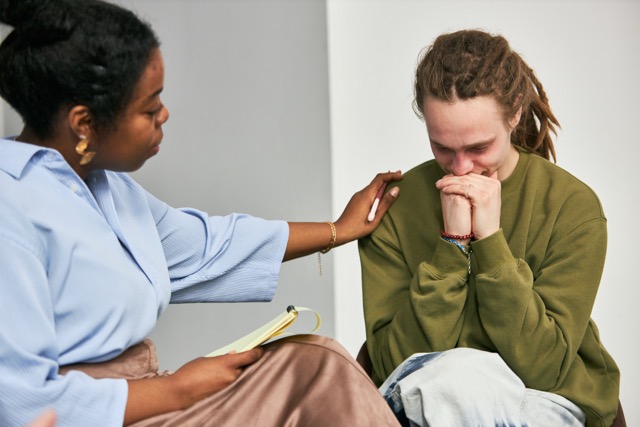Recovery Doesn’t Mean Isolation — It Means Reconnection
Entering drug or alcohol rehab is a deeply personal journey—but it doesn’t have to be a lonely one. While recovery requires self-focus, it also offers a powerful opportunity to rebuild and strengthen relationships with family and friends. For many in rehab, maintaining healthy connections with loved ones becomes a motivating force and a crucial part of long-term success.
But how do you nurture those relationships while you’re focused on healing yourself? What boundaries are needed? What if there’s been hurt, mistrust, or distance caused by substance use?
Here’s what to expect—and how to navigate family and friendship dynamics while in treatment.
1. Be Honest, But Patient
When you enter rehab, your loved ones may be relieved, supportive—or unsure how to respond. Some may not understand what rehab entails. Others may carry pain, anger, or distrust from past experiences. The best approach is honesty, followed by patience.
If your facility allows contact, let close friends and family know where you are and that you're focused on getting better. You don’t have to share every detail, but being open about your commitment to recovery can begin the rebuilding process.
Tip: A simple message like, “I’m in treatment because I want to get better. I know I’ve hurt you, and I hope over time we can heal together” goes a long way.
2. Take Advantage of Family Therapy (If Offered)
Many rehab programs offer family therapy or educational sessions—and for good reason. Addiction doesn’t just affect the person using substances; it affects everyone close to them. These sessions can:
- Help family members understand addiction as a disease
- Address communication breakdowns
- Provide a safe space for both sides to express feelings
- Begin the process of forgiveness and accountability
Even if things feel strained, these sessions can spark transformation.
Tip: Encourage family members to participate—even if virtually. Their involvement shows a willingness to meet you in your healing.
3. Set Healthy Boundaries
One of the biggest lessons in early recovery is learning to set boundaries, both for yourself and with others. This might mean limiting contact with certain people temporarily, especially if they’re enabling or not supportive of your sobriety.
It may also mean saying no to family drama, guilt, or attempts to distract you from your healing work. Recovery is not about people-pleasing—it’s about getting honest, even when it’s uncomfortable.
Tip: A healthy boundary could sound like: “I want to be close again, but right now I need to focus on treatment. I hope you understand.”
4. Communicate Progress and Intentions
While in treatment, you’ll likely have breakthroughs, insights, and goals. Sharing pieces of your progress with loved ones can help rebuild trust and connection. Whether through letters, supervised calls, or therapy sessions, these updates can reassure others that you’re serious about change.
Just remember: Actions matter more than promises. Don’t pressure people to forgive or “move on” before they’re ready.
Tip: Instead of saying “I’ve changed”, try saying, “I’m learning how to change, and I want to show you over time.”
5. Prepare for Mixed Reactions
Not everyone will be ready to reconnect immediately—and that’s okay. Some family members may carry deep hurt, while others may struggle with their own unhealthy patterns. Recovery means learning to accept where people are without taking it personally.
Rebuilding relationships takes time, trust, and consistency. Keep focusing on your recovery, and let your progress speak for itself.
Tip: It’s not your job to fix everyone around you. Your responsibility is to heal yourself and show up differently moving forward.
6. Embrace New Ways of Connecting
Rehab often introduces healthier habits—like honest communication, emotional vulnerability, and accountability. These can become new foundations for your relationships.
Rather than falling back into old patterns, try connecting in new ways:
- Share things you’re learning in treatment
- Invite loved ones to attend recovery-related events post-rehab
- Celebrate milestones together, even small ones
- Talk about goals, hopes, and fears without shame
Tip: Vulnerability builds trust. The more you show your true self, the stronger your relationships can grow.
Rehab isn’t a break from your life—it’s a reset. And part of that reset includes restoring (or redefining) your relationships. While some connections may take time to heal—or may not be repairable—many others can grow stronger than ever.
Remember: The same courage it takes to get sober is the courage it takes to reconnect. And the people who love you most are often waiting for the chance to walk this path with you.





.webp)
.webp)